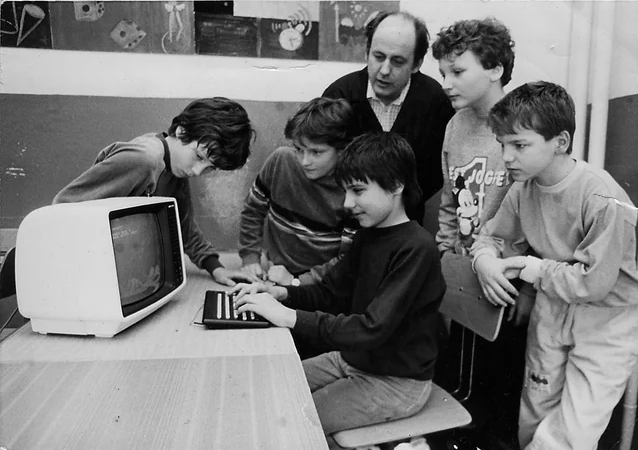I started my career in education as a primary teacher. I completed my Diploma of Teaching in 1989 and was headhunted by a small, prestigious independent school in NSW, Gib Gate, to teach ‘Transition’ (called Prep in Queensland, Kindergarten in NSW): 28 five-year-old children. Nearly killed me! Fortunately I had an assistant.
Although I was enrolled in a Bachelor of Education, I was offered the job before finishing. Yes, back in the day, you could teach with just a Diploma. And, probably just like today, I learned more in my first month alone in the classroom than I did in three years at university.
I eventually completed my degree externally while teaching the children of rock legends Jimmy Barnes and Mark Opitz (producer for INXS), as well as the children of comedian Billy Birmingham of 12th Man fame. The expectations were high.
To be honest, I had little idea what I was doing at first. Why? Because there was no mandated curriculum. None. Zip. Not even a local curriculum document to guide us. So, what did we teach? We made it up.
In my second year, the NSW government released a mathematics curriculum. It came as a softcover A4 book, maybe 250 pages long, covering Kindergarten to Year 6. That small document gave me a little more confidence.
And you know what? Despite the lack of formal curriculum and regulation, the children learned. They learned to read, write, and do arithmetic. They explored science, history, and the environment. They drew, painted, made music, and played sport.
They thrived in the units we created from scratch: The Gold Rush, Journey to the Centre of the Human Body, and many more. These were rich, immersive learning experiences, unburdened by excessive compliance.
We loved the work. It was still demanding, time-consuming, and hard, but it was deeply fulfilling. We could teach. We could be creative in what we brought to the classroom. We could be ourselves and build a strong rapport with the students and strong respectful relationships with the parents.
Risk assessments? Barely a thing. We ran epic school camps. I once took a Year 5 class caving. No paperwork, no forms, no legal department. I even drove them in a mini-bus to the camp site. And guess what? Nobody got seriously hurt. To my knowledge, the school was never sued. Try doing that today. It wouldn’t even pass muster.
So — was it better then or better now?
Here’s something intriguing: when NAPLAN was first introduced in the early 2000s (and not yet published, before the days of My School), student literacy and numeracy results were significantly stronger than today’s; significantly. PISA results were also much higher. Australia ranked among the world’s best education systems.
Since then, we’ve seen stagnation or decline.
What’s changed?
- Curriculum: There wasn’t a national curriculum back then. Yet results were better.
- Regulation: Today, we are drowning in it. Back then? Almost none.
- Qualifications: Back in the day most teachers had only two-year diplomas. Now, four years is the norm, and yet results are going backwards.
- Learning science: We think we know more today about how learning works. But if that’s true, why were results so much better three decades ago, back in the day?
- Funding: Education has received more money over the past two decades than in many previous ones combined.
So, what’s the problem?
Why is student engagement plummeting?
Why is academic performance stagnant?
Why are behavioural issues skyrocketing?
Why are teachers leaving the profession in droves?
Was it better then? Or is it better now?
Maybe there’s something else at play, a powerful, hidden force sucking the joy, creativity, and life out of our classrooms. Maybe it's time we stopped tweaking the surface and started asking deeper questions about how best to run our education system.
